A connotation is often used to describe the emotional associations that a word evokes. Generally, we have three types of connotations-positive, neutral and negative. For example: Positive connotation: The word "home" might have positive connotations of safety and comfort. Neutral connotation: The word "house" might have a neutral.. Which word has the most negative connotation? upset, mad, furious. FURIOUS has the most negative connotation. What term refers to an author's use of words and writing style to convey his or her attitude towards a topic; often defined as what the author feels about the subject.
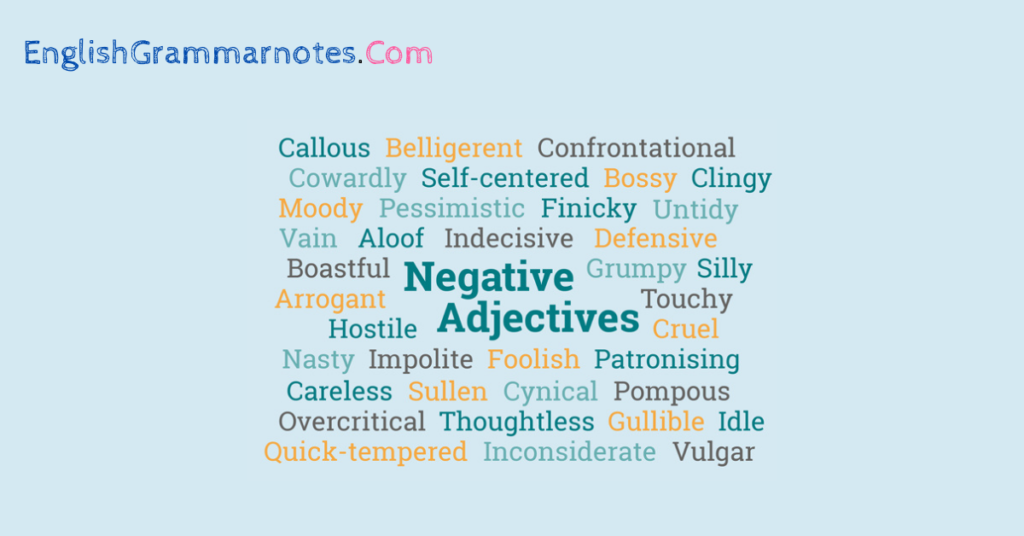
Negative Words in Grammar that you can Use List of Effective Negative Words to Expand your

Negative Prefix List Uses. learn English,prefixes,negative,english

Negative Connotation synonyms 30 Words and Phrases for Negative Connotation
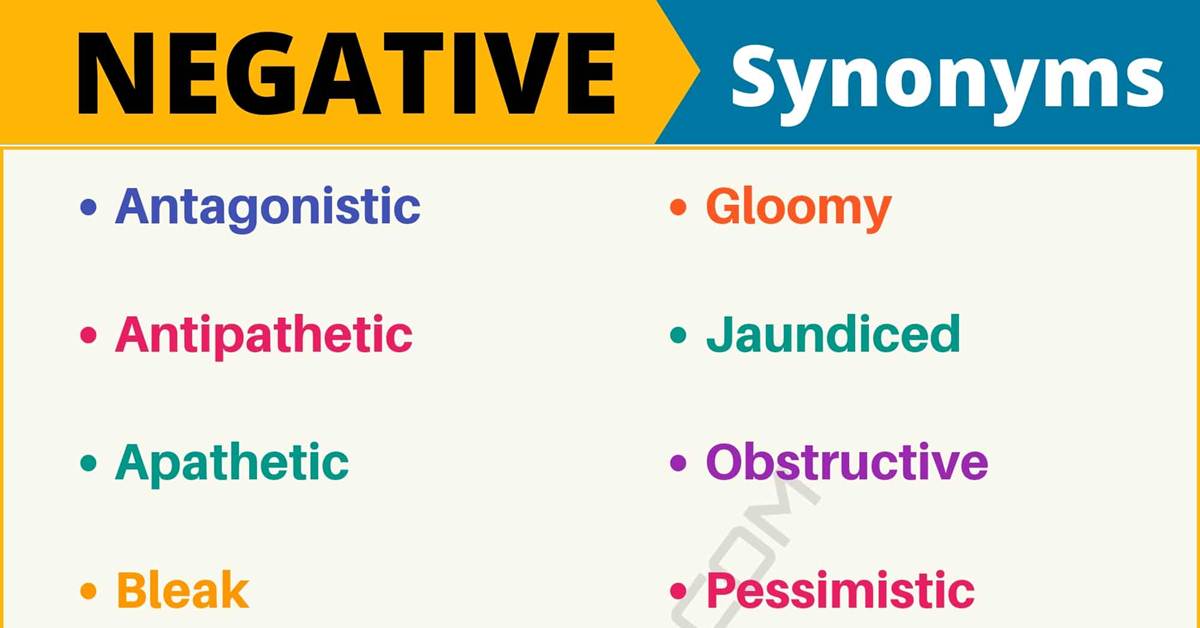
NEGATIVE Synonym List of 17 Synonyms for Negative with Useful Examples • 7ESL

Exploring the Weight of Negative Words Which Words Have the Most Negative Connotations? The
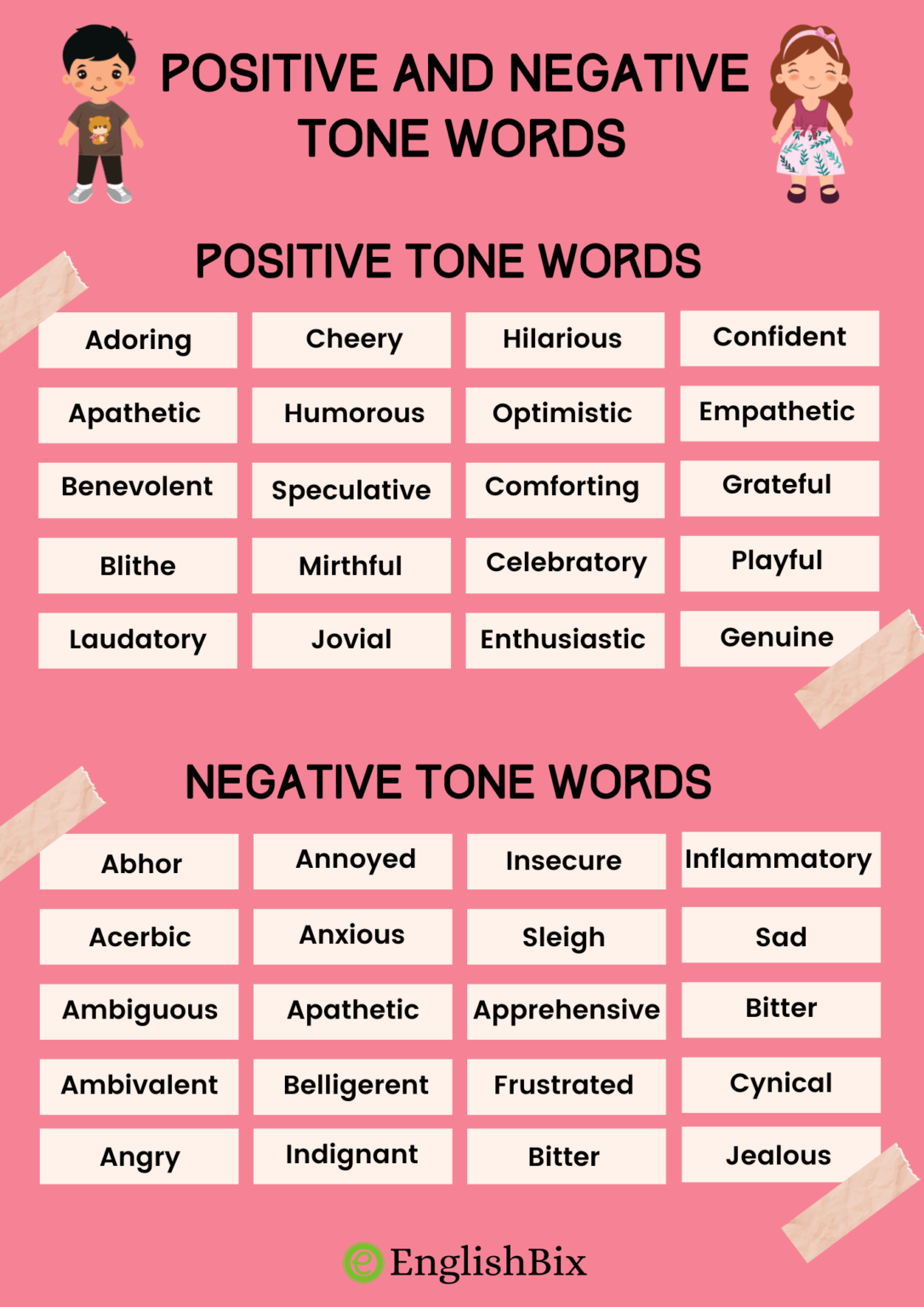
Positive and Negative Tone Words List EnglishBix
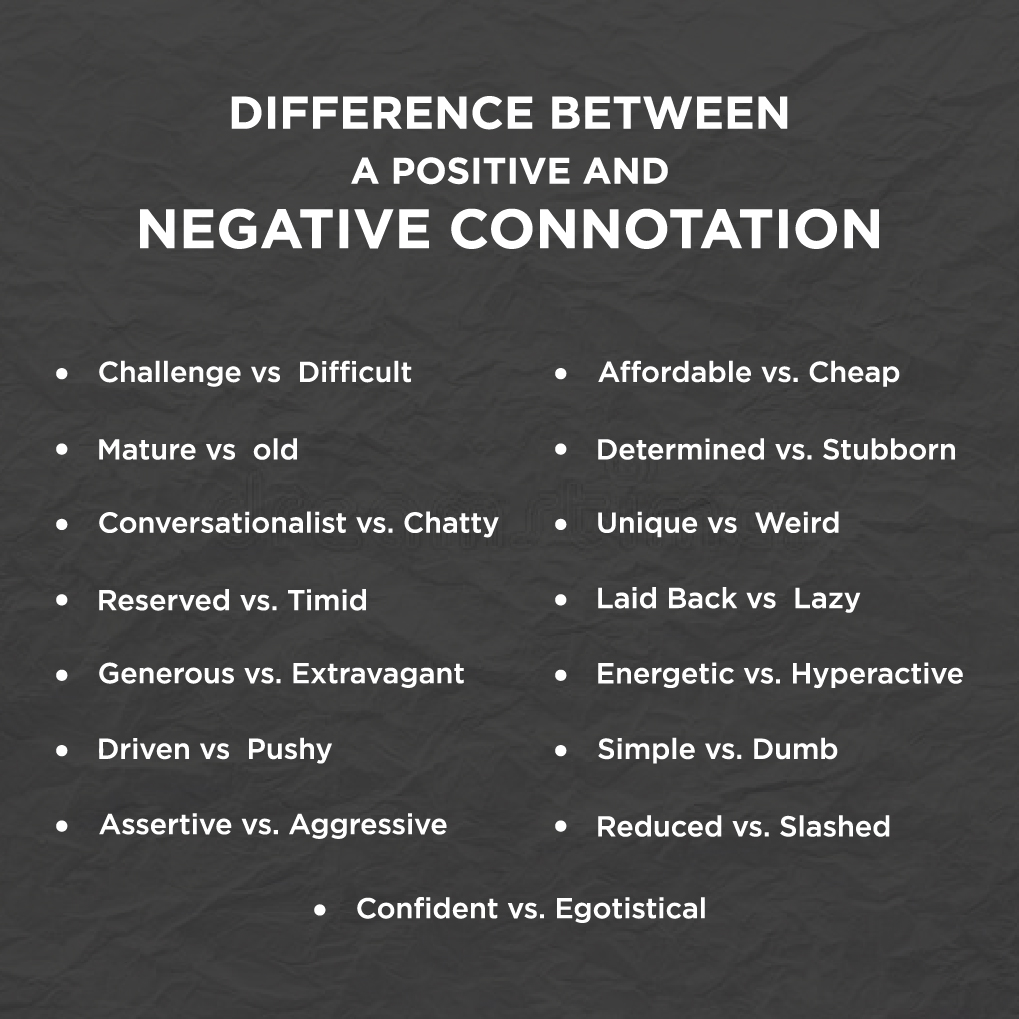
What is Negative Connotation? Definition, Formula and Examples

What is Negative Connotation? Definition, Formula and Examples
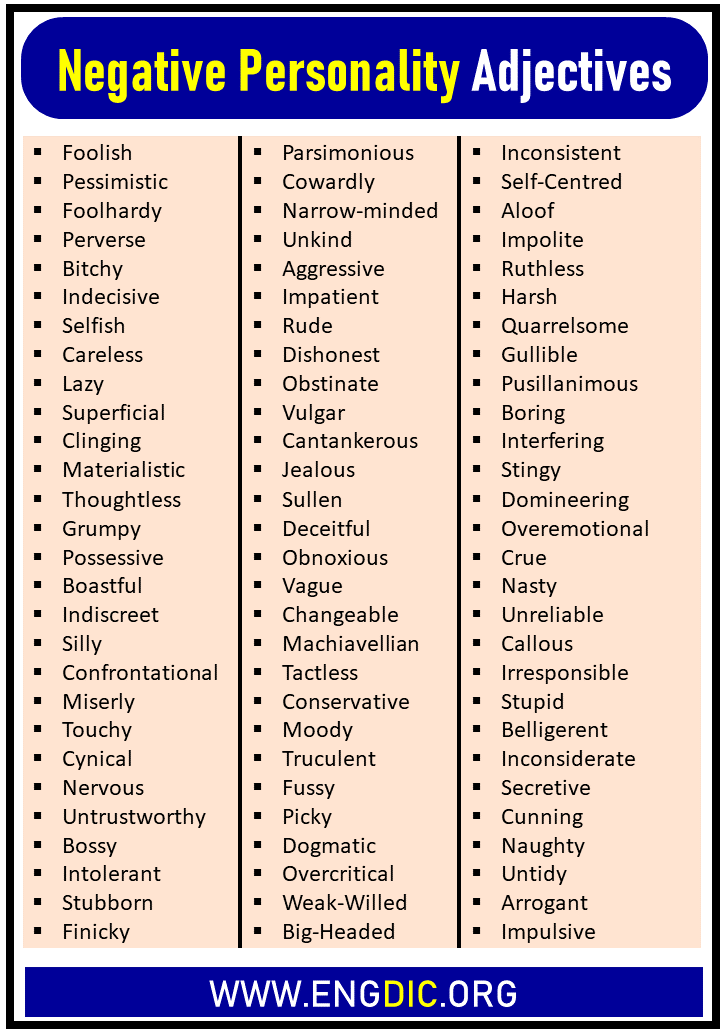
100+ List of Negative Personality Adjectives EngDic

Negative connotation jobnored
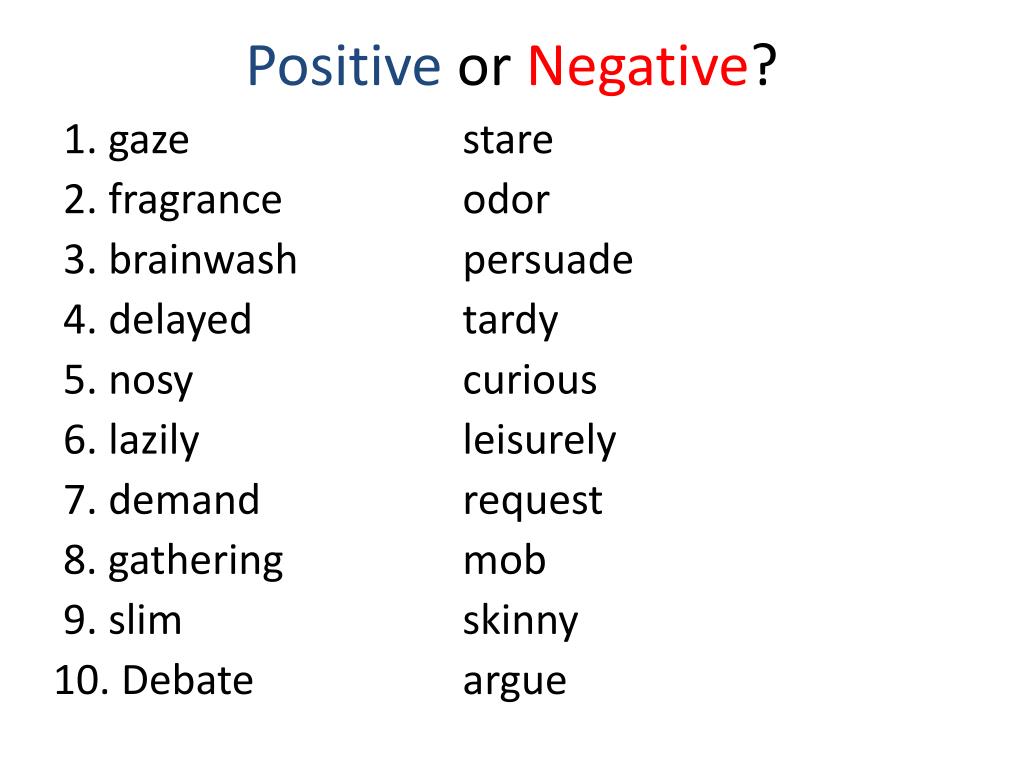
PPT Connotation and Denotation PowerPoint Presentation, free download ID2861421
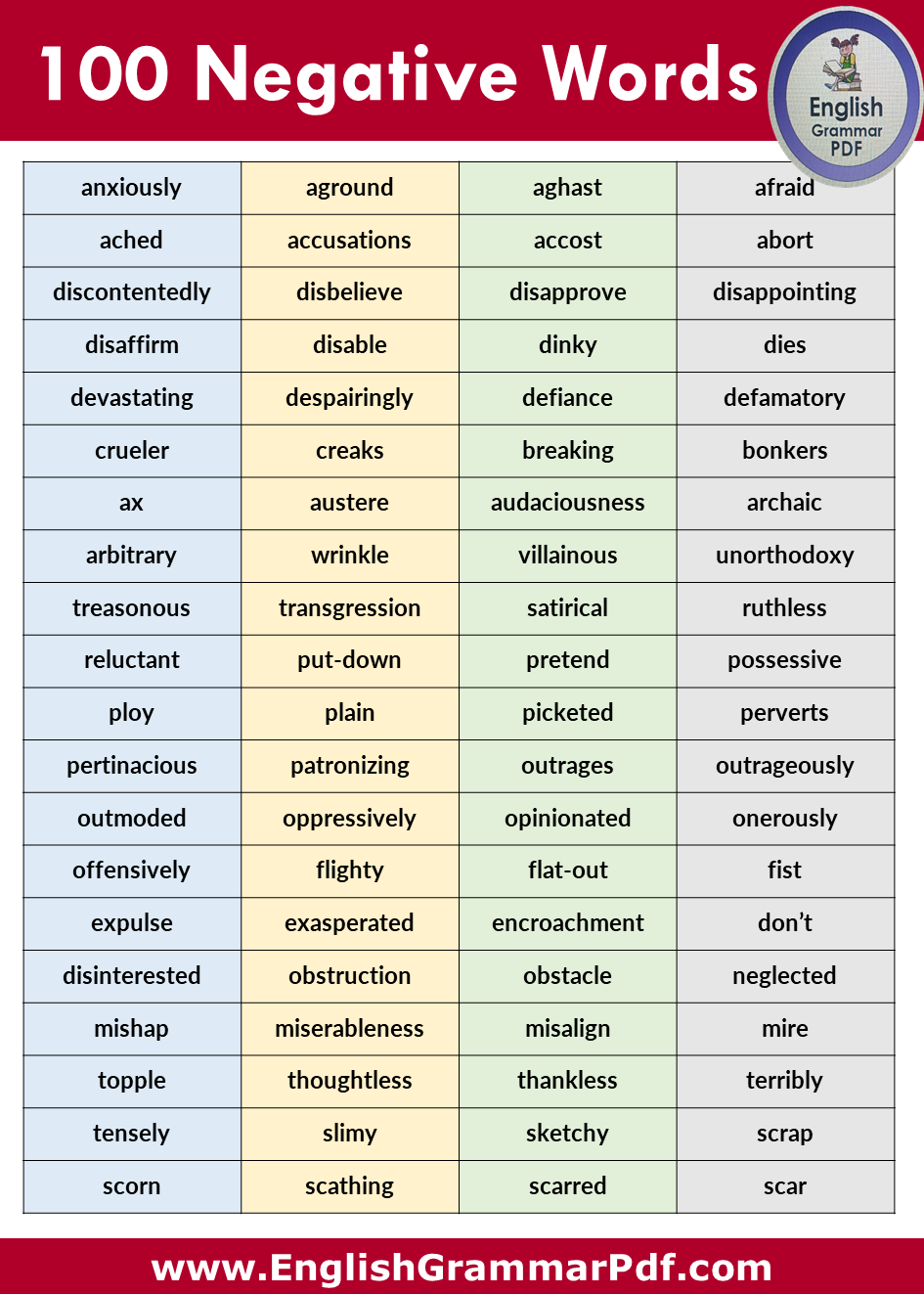
100 Negative Words List, English Negative Vocabulary PDF English Grammar Pdf

Exploring the Most Negative Word in the English Language The Knowledge Hub

Negative Words That Start With R English Vocabs
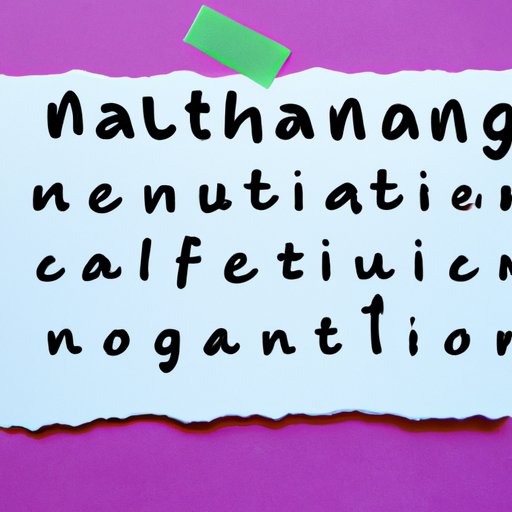
Exploring the Weight of Negative Words Which Words Have the Most Negative Connotations? The
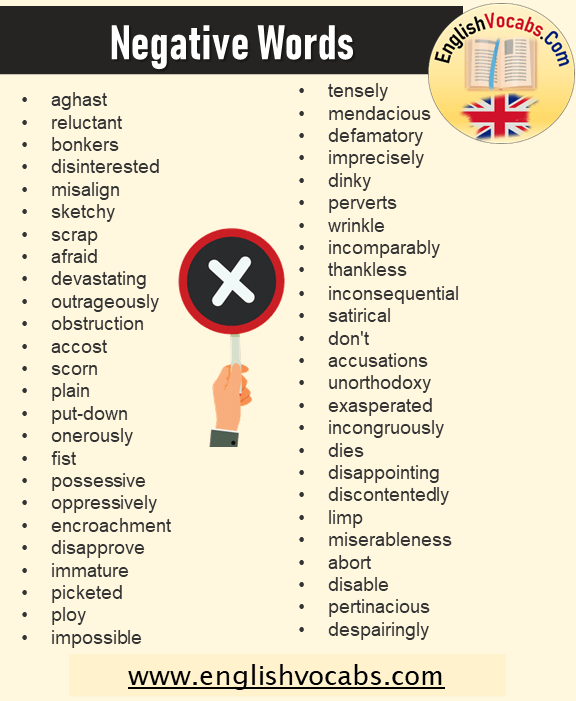
+3000 Negative Words List, English Negative Vocabulary English Vocabs
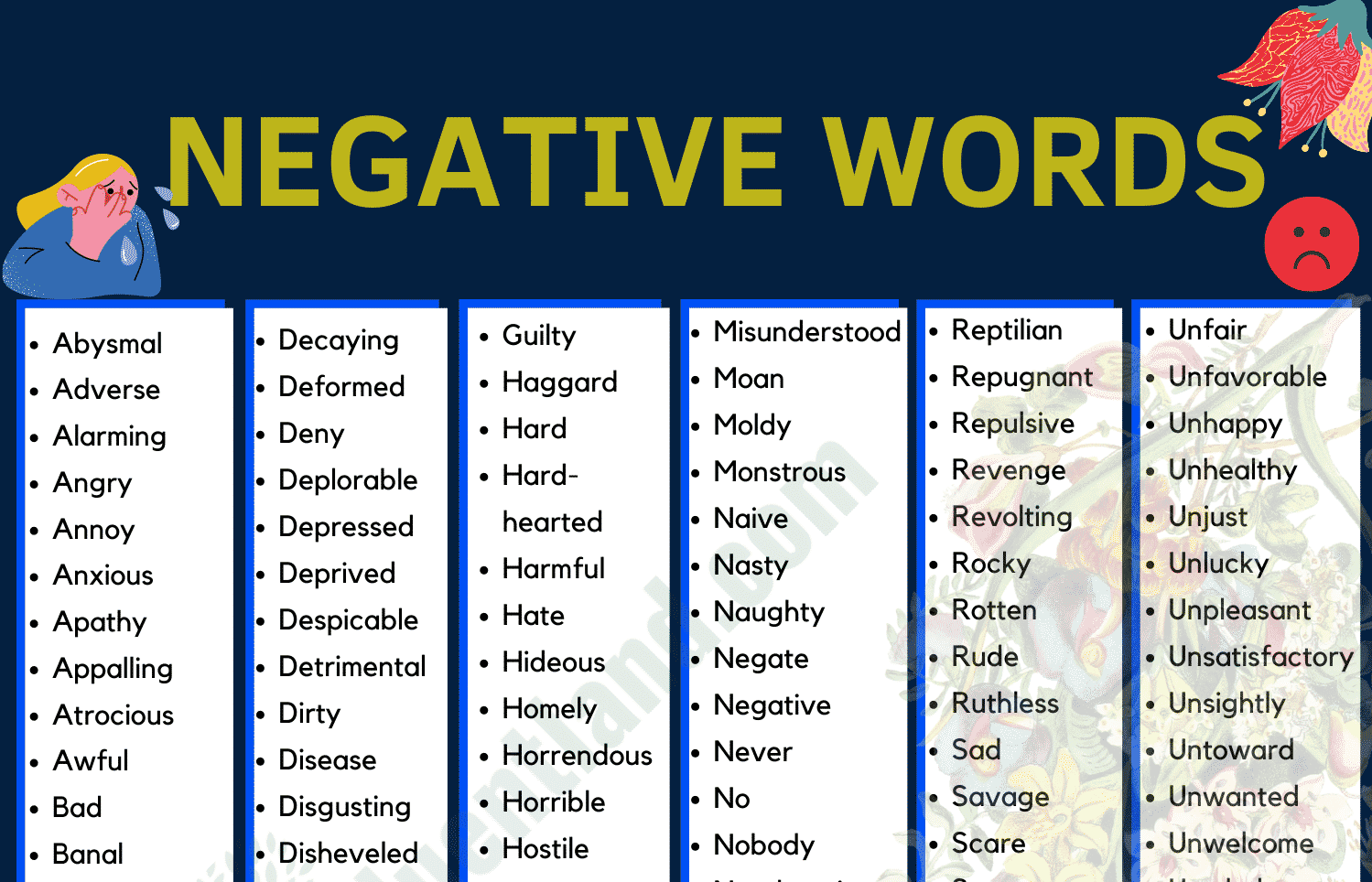
Negative Vocabulary Word List Fluent Land

PPT Elements of Argumentative Writing PowerPoint Presentation ID1489246

Exploring the Most Negative Word in the English Language The Knowledge Hub

Negative Words List of 235+ Negative Words to Enhance Your Vocabulary • 7ESL
Connotation is an additional meaning for a word or phrase; thus, the examples are endless. As mentioned, many words will share the same literal meaning, but may connote different feelings or ideas. Below are several examples: Stench, smell, aroma, scent, odor. Strong, tough, sturdy, hard.. Connotation (kon-oh-TAY-shun) is the cultural or emotional association related to a word that extends beyond its dictionary definition. Many words are synonymous but have different emotional effects, impacting the reader in a distinct way. Connotation may also vary based on reader background, as people with particular life experiences or living in diverse cultures may respond to certain words.